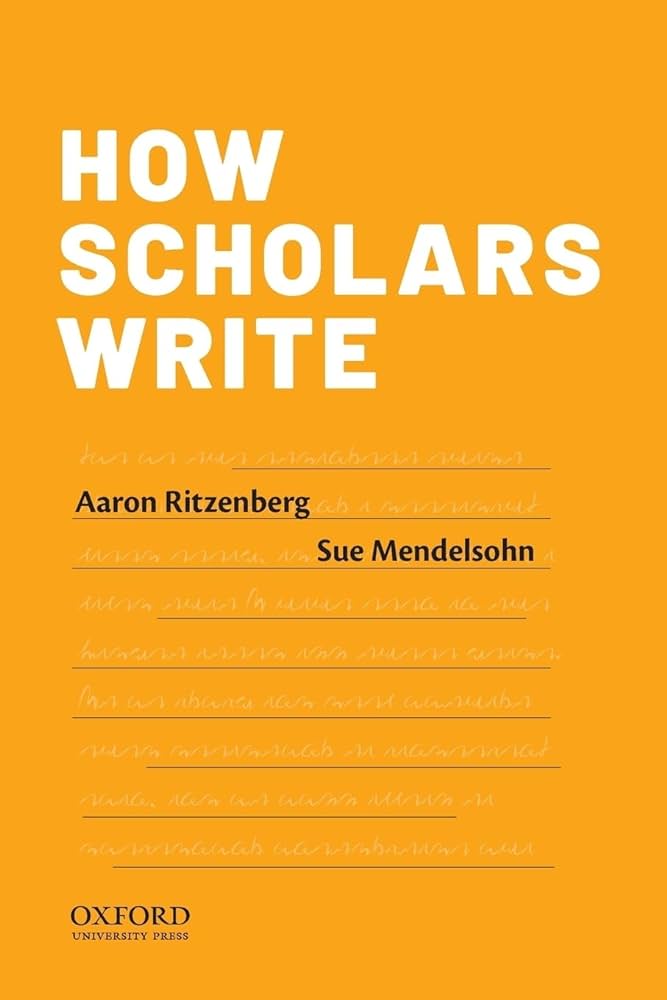Book Summary and Review: How Do Scholars Write
How Do Scholars Write?
And what does that mean for university students?
Book Summary and Review By Chris Edling, visiting Fulbright Scholar
 How do professional scholars actually write? What is their real process? And how can university students—nascent scholarly writers themselves—most effectively learn these processes and habits of mind?
How do professional scholars actually write? What is their real process? And how can university students—nascent scholarly writers themselves—most effectively learn these processes and habits of mind?
These questions drive How Scholars Write, a 2021 book from Oxford University Press by Aaron Ritzenberg and Sue Mendelsohn, who are Associate Directors of the Undergraduate Writing Program at Columbia University. Rather than prescribing rules, fomulas, or dogma, the authors approach academic writing empirically by observing and breaking down the steps that professors, researchers, and other scholarly writers take to produce their work. The book draws on research from relevant disciplines (“writing studies, cognitive psychology, educational psychology, and applied linguistics”) as well as real-life examples from scholars in the humanities, social sciences, and natural sciences. As good teachers, the authors divide each chapter into two sections: “Mindset,” which describe how scholars conceptualize each aspect of the writing process, and “Tools & Techniques,” which offer practical strategies for each mindset.
“The Pursuit of Ignorance,” the book’s first chapter, encapsulates the book’s counterintuitive ethos. The form of some academic texts may lead us to believe that scholarly writing is a demonstration of what the writer already knows: state a thesis, then prove or explain it. In practice, though, the process of academic writing is precisely the opposite: scholars first raise questions about “problems” (“difficulties that arise from a gap in understanding”) for which the answer is uncertain, then explore these questions via research and writing, arriving at a thesis only at the end. Citing the work of Columbia University biology professor Stuart Firestein, the authors call this disposition “knowledgeable ignorance”—seeking out what we don’t know, rather than seeking proof for what we already know (or think we know).
Along the way, Ritzenberg and Mendelsohn cover all sequential aspects of this inquiry-driven writing process, from reading and note-taking to structuring, drafting, and revising. Several chapters are devoted to source use—how to select, analyze, integrate, and cite others’ work—since academic writing joins and extends ongoing dialogue among experts.
For the field of writing studies, How Scholars Write accomplishes exactly that: it extends and deepens experts’ ongoing dialogue about how to think and write effectively. For teachers and students who want to learn that process, this book is an excellent place to start.
Chris Edling is Clinical Associate Professor in the Expository Writing Program at New York University and a Fulbright Scholar at AUA for the Spring 2024 semester. He formerly taught in the Undergraduate Writing Program at Columbia University.
